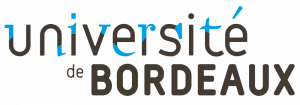
- This event has passed.
Séminaire SBM invité par A. Bikfalvi : Barak Rotblat
14 février 2023 à 11h00 - 12h00
Séminaire du Dr Barak Rotblat : »How do cells survive glucose starvation »
Barak Rotblat, Ben Gurion University (BGU), Israël est invité par Andreas Bikfalvi (équipe 01) pour un séminaire en ligne le 14 février à 11h.
Abstract: Cells use glucose as a primary source of energy and have developed ways to detect changes in glucose levels to activate survival mechanisms. One such mechanism is the inhibition of a protein called mTOR, which is responsible for controlling cell growth. It was previously thought that this inhibition leads to a reduction in protein synthesis and preservation of ATP, but our research has found that the true mechanism is actually a decrease in the translation of mRNA that codes for ACC1, an enzyme involved in fatty acid synthesis. This leads to a decrease in fatty acid synthesis, NADPH consumption, and ROS levels. This mechanism is conserved in human. mouse and yeast cells and exploited by tumor cells to generate tumors in the brain, a low-glucose environment.
Prof. Rotblat studies the molecular biology of cancer by examining the role of long non-coding RNAs and regulators of mRNA translation. Among other functions, long non-coding RNAs (lncRNA) control regulation in cells. Protein content analysis shows that a cancerous cell is very similar to a normal cell from the same tissue; for example, a cancerous breast cell is more similar to a breast cell than to a cancerous cell in the lung. However, while the protein profiles of healthy and cancerous cells from a given tissue are very similar, their lncRNA content is very different. Therefore, lncRNA represents a promising drug and therapeutic target. Regulating mRNA translation is key in the cellular mechanism by which tumor cells adapt to stress. Prof. Rotblat and his colleagues seek drug targets and inhibitor molecules aimed at processes that are used by cancer cells to adapt to starvation conditions, such as found in a tumor.




